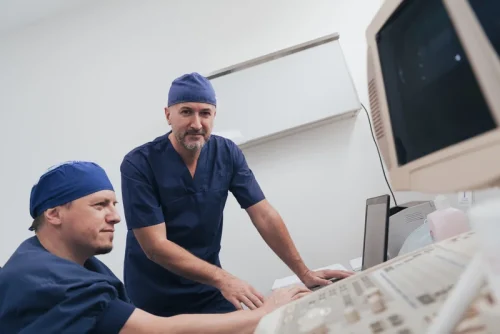How MDMA Therapy Works: Understanding the Process
How MDMA Therapy Works: Understanding the Process

The FDA has also allowed an expanded access program for MDMA therapy, which means people who have life threatening, treatment-resistant PTSD and are unable to take part in clinical trials can access MDMA therapy. Evan is a licensed clinical psychologist in private practice in San Francisco and Berkeley and a psychedelic researcher in FDA clinical trials for MDMA-assisted psychotherapy for PTSD at UCSF and Polaris Insight Center. He has a background in trauma-informed psychodynamic and Jungian psychotherapy and uses dreams to explore attitudes unconscious to the waking self. He provides psychedelic integration for those exploring non-ordinary states, spiritual emergencies, grief, and overwhelming life adjustments and offers ketamine-assisted therapy for depression and acute suicidality at Sage Integrative Health. Therefore, to maximize safety, participation has been limited to physically healthy individuals and those with stable medical conditions that don’t pose a high risk for complications due to MDMA.

Therapeutic Approach and Support
MDMA is also called an entactogen (“touching within”) or empathogen, terms which describe a class of drugs that can produce feelings of empathy, oneness, and emotional openness. However, the federal health agency also noted concerns that the drug has the risk of causing “patient impairment” and the potential for “serious harm” as a result of impairment. MAPS is working now to persuade public and private insurance plans to cover the treatment, Burge adds. He estimates that for patients paying for it entirely out of pocket, the cost of a 12-week course of treatment would run between $5,000 and $10,000.
Reply to: Caution at psychiatry’s psychedelic frontier and Challenges with benchmarking of MDMA-assisted psychotherapy
Research on psilocybin and other psychedelics drugs for treating PTSD is at an earlier stage. RCTs of psilocybin for treating depression also have shown promising results for effectiveness. MDMA therapy uses regulated doses of MDMA in a clinical setting to help healthcare professionals treat certain psychiatric conditions, such as PTSD. This diversity means that the study provides a more comprehensive representation of the entire PTSD patient population.

MORE: A form of ‘ecstasy’ could be a new treatment for post-traumatic stress
Aftercare may help a person prevent relapse and develop positive coping skills. However, there has been some groundbreaking research on the administration of oxytocin, a how long does mdma stay in your system naturally occurring bonding hormone, to those suffering from addiction. See our page on psychedelic therapy for useful info about psychedelic therapy. MDMA has passed Phase 1 and Phase 2 studies, and is now in Phase 3 studies with the FDA to treat PTSD.
- Aftercare may help a person prevent relapse and develop positive coping skills.
- Subgroup analyses have provided valuable insights into factors that may predict treatment response.
- One of those who signed the petition after seeing it posted online is Dr. Boris Heifets, an anesthesiologist at Stanford University whose lab studies psychedelics, including MDMA.
- “The problem is we haven’t had a new drug to treat PTSD in over 17 years,” says Sue Sisley, a physician and president of the Scottsdale Research Institute, based in Arizona.
- The drug’s effects on your brain and body can last up to 8 hours, which gives you time to revisit and work through painful events.
Associated Data
The potential benefits of MDMA for PTSD have only been demonstrated when the drug is taken during a course of psychotherapy. Also, MDMA obtained outside of a clinical setting may contain drugs other than MDMA or harmful impurities. Research is helping us understand whether psychedelic drugs, in combination with psychotherapy (or talk therapy), might improve PTSD. Although MDMA is not approved for https://ecosoberhouse.com/ clinical use by the FDA, it can be studied in research settings.
- Her Center for Psychedelic Psychotherapy and Trauma Research uses clinical trials, computational genetics, molecular biology, blood samples, and neuroimaging to accelerate understanding of how MDMA and psilocybin work.
- Food and Drug Administration (FDA) designated MDMA-assisted psychotherapy as a breakthrough therapy.
- MDMA also has a weak affinity for some serotonin (5-HT) receptors; hence, some of its effects may be attributable to direct binding.
- MDMA therapy, also known as MDMA-assisted psychotherapy, is an innovative form of treatment that combines regulated doses of MDMA with therapy sessions to promote emotional healing and psychological transformation.
- These considerations highlight the need for future studies to employ systematic checklists for adverse events assessment and adhere to rigorous reporting practices.
Long-term adverse events
But since then, a group of more than 70 clinicians, investigators and others involved in the Phase 3 MDMA trials have published a detailed response, saying that certain aspects of the trials were “misrepresented” and that a number of assertions amount to “hearsay.” The ICER report is yet to be finalized, but Rind says their analysis showed “there’s still a lot of uncertainty” about the treatment. Tylek was in the placebo group, but was later given the opportunity to undergo the therapy with MDMA. If true, the claims could jeopardize the drug’s chances of receiving FDA approval, a decision that is expected to come by early August. Research on MDMA has shown it can be effective for PTSD, but approval of the treatment isn’t yet guaranteed.
MDMA
Most reviews did not account for the supplemental dosage and the percentage of participants who received it when reporting the dosage, making it difficult to summarise the final dosage used in evidence generation. The duration of intervention for some pooled analyses was unclear or not reported in some reviews, limiting the interpretation of data in terms of effect durability. Future systematic reviews should ensure comprehensive investigation of the psychotherapy component, supplemental dosage, and duration of intervention to improve comparability of data across reviews.
What is MDMA-Assisted Therapy?

In response to the petition’s call for a public meeting, a spokesperson for Lykos sent NPR a statement in April saying the company supports holding an advisory meeting. In it, they ask for extended time for stakeholders who are concerned about the “risks and shortcomings” of the research. But she contends that ICER tried to conduct an investigation without access to the full data.
Participate in MDMA Study
- MDMA-assisted therapy received “breakthrough therapy” status from the US Food and Drug Administration (FDA) in 2017.
- Small-scale studies have shown reduced psychological trauma, however there has been widespread misunderstanding of the aims and implications of this work, most commonly the notion that MDMA is a ‘treatment for PTSD’, which to date has not been researched.
- As we learn more from applying MDMA there is sure to be new knowledge to implement as we go.
- The teams of therapists at The Pearl Psychedelic Institute have been trained through the MAPS MDMA Therapy Training Program.
- This approach employs empathetic presence and rapport while focusing on invitation rather than direction.
- The growing evidence for MDMA-assisted psychotherapy’s effectiveness is making further research possible.
However, research suggests that MDMA affects the brain in ways that may be particularly beneficial for individuals with PTSD. Currently, MDMA is classified as a Schedule I controlled substance in the United States, making it illegal for most uses outside of approved clinical research settings. However, the FDA has what is Oxford House granted Breakthrough Therapy designation to MDMA-assisted psychotherapy for PTSD, which eases the development and review process.
Future systematic reviews should address these issues to ensure evidence from clinical trials can be used to inform clinical practice regarding the use of MDMA-AP for PTSD. There are gaps in how systematic reviews have reported psychotherapy, supplemental dosage and duration of interventions. Eleven of 14 systematic reviews did not compare and contrast the psychotherapy sessions that accompanied the MDMA administrations, except 3 reviews (Bahji et al., 2023; Heath et al., 2022; Mackey et al., 2022). The psychotherapies provided in those trials were not evidence-based treatments for PTSD, and there is no evidence of their effectiveness for PTSD as stand-alone treatments (Halvorsen et al., 2021). In addition, the reporting of supplemental dosage within and across systematic reviews was inconsistent and not standardised.


